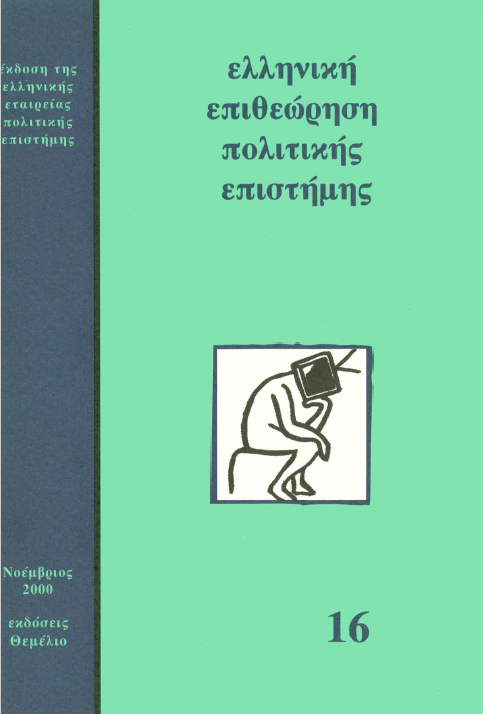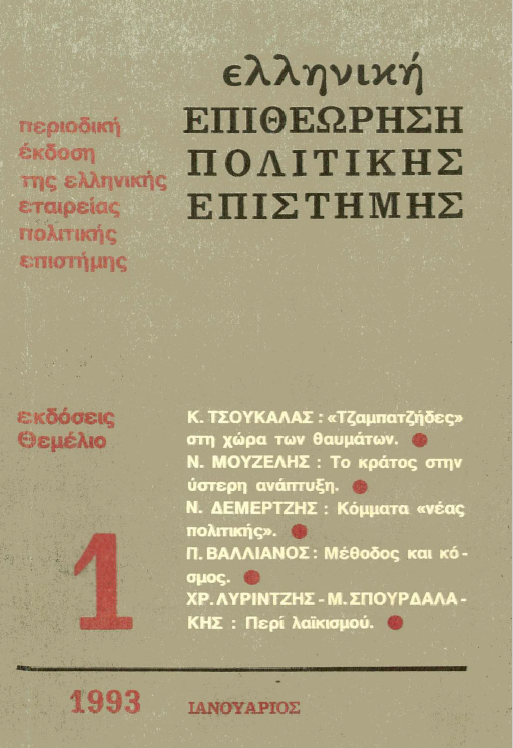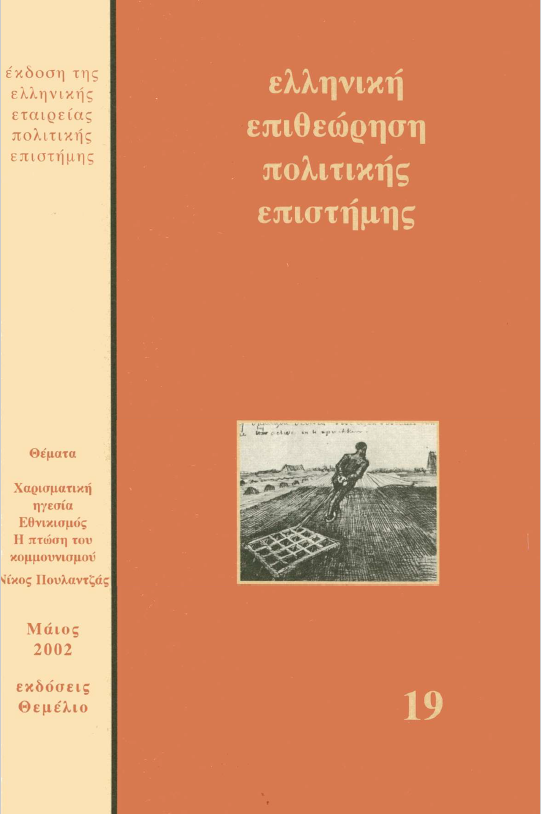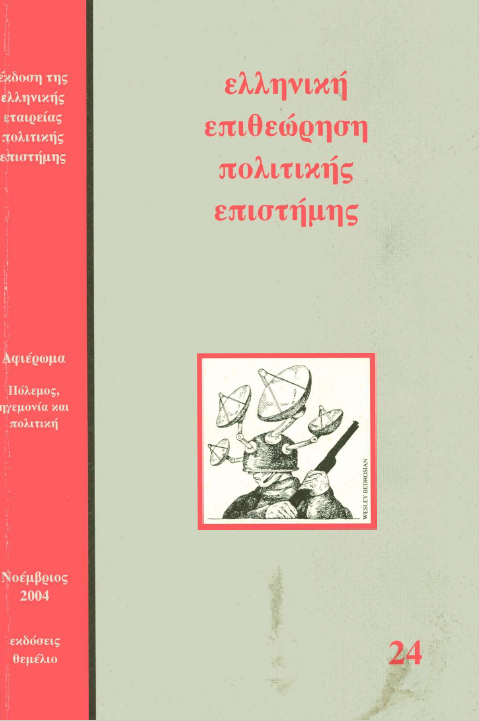Political culture and mass communications: the case of Athenian students
Abstract
Based upon data of a survey research, a first systematic monitoring and interpretation is made of university students’ political attitudes and perceptions and their relationship to mass media. In addition, the dependence of basic political cultural parameters, such as political disaffection and satisfaction from democracy, on media use and evaluation is examined, in order to distinguish the features of the particular social category of «university students». From the analysis of the results it came to light that university students are relatively more interested in politics than the general population and the rest of the youth, they are possessed by political alienation and cynicism and they feel politically incompetent. Although they are against political and student parties, one out of three declares satisfied from the operation of democracy in the country. High television viewing is not related to interest in politics. On the other hand it is related to high satisfaction from democracy and limited feeling of political competence, indicating that high television viewing contributes to constructing the spectacle of political acting and creating inert citizens-viewers. Finally, some trends of negativeness and alienation seem to already exist and function independently from televised and printed news reports.
Article Details
- How to Cite
-
Δεμερτζής Ν., & Αρμενάκης Α. (2017). Political culture and mass communications: the case of Athenian students. Greek Political Science Review, 16, 34–71. https://doi.org/10.12681/hpsa.15185
- Section
- Articles

This work is licensed under a Creative Commons Attribution-NonCommercial-ShareAlike 4.0 International License.
Authors who publish with this journal agree to the following terms:
Authors retain copyright and grant the journal right of first publication with the work simultaneously licensed under a Creative Commons Attribution licence that allows others to share the work with an acknowledgement of the work's authorship and initial publication in this journal.
Authors are able to enter into separate, additional contractual arrangements for the non-exclusive distribution of the journal's published version of the work (e.g. post it to an institutional repository or publish it in a book), with an acknowledgement of its initial publication in this journal.
Authors are permitted and encouraged to post their work online (preferably in institutional repositories or on their website) prior to and during the submission process, as it can lead to productive exchanges, as well as earlier and greater citation of published work (See The Effect of Open Access).








